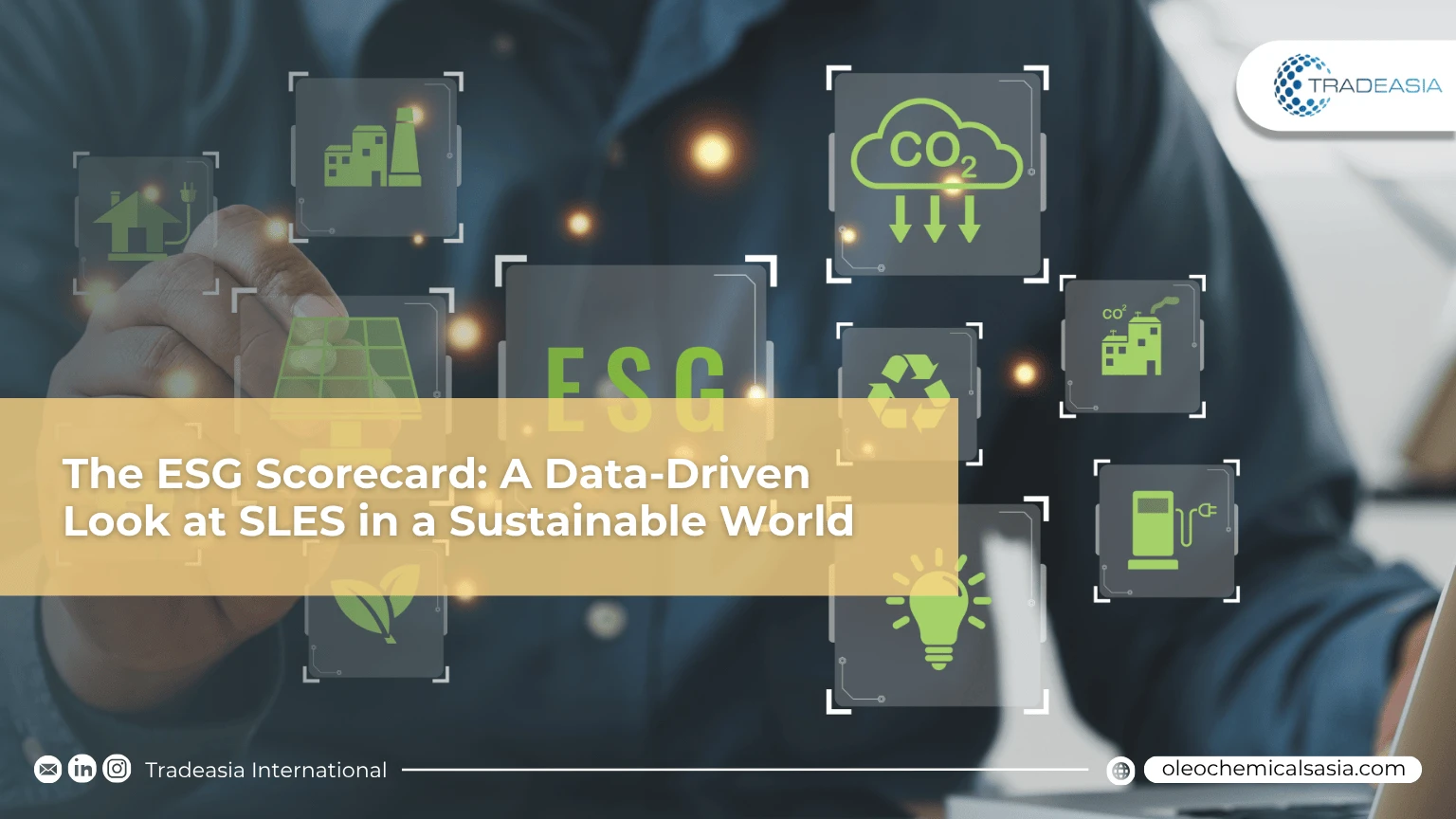Market Insight
02 October 2025
The ESG Scorecard: A Data-Driven Look at SLES in a Sustainable World
Oleochemicals

Table of Content
- Beyond the Label to the Ledger
- From a Story to a Ledger: Proving Sustainability
Market Insight
02 October 2025
Oleochemicals

In today's C-suite and among institutional investors, sustainability is a conversation guided by data, not just definitions. With over $40 trillion in global assets now managed under strict Environmental, Social, and Governance (ESG) criteria, every ingredient in a supply chain is under scrutiny. In this high-stakes environment, a lifecycle analysis (LCA) provides the hard data needed for credible reporting. When benchmarked, SLES from a certified sustainable palm source builds a surprisingly powerful case as a top-tier ESG performer. This is the level of data-driven assurance that Tradeasia International strives to provide, ensuring our oleochemicals meet the highest standards of performance and responsibility.
The flight to "sulfate-free" is often based on marketing perception, but the numbers tell a more nuanced story. A comprehensive LCA reveals that due to its highly efficient manufacturing process, SLES from an RSPO-certified palm source can have a final carbon footprint that is 15-25% lower than some common sulfate-free alternatives. This kind of verifiable data is precisely what strengthens a company's ESG score and attracts investment. Furthermore, SLES is classified as "readily biodegradable," breaking down by more than 60% in 28 days—a key metric that satisfies both regulatory bodies and environmentally conscious consumers.
This data provides a powerful commercial advantage. In a market where products with credible green claims are outpacing conventional goods by a 2-to-1 margin, the ability to back up your sustainability story with facts is paramount. As a sourcing manager might say, "in 2025, a sustainable product isn't a story you tell, it's a ledger you can prove." A holistic, evidence-based view confirms that a responsibly sourced SLES offers a winning combination of performance, value, and a robust ESG profile, making it a smart, defensible choice for any forward-looking company.
Sources:
Peer-Reviewed Studies: The International Journal of Life Cycle Assessment
Sustainable Finance Data: BloombergNEF
Palm Oleochemical Insights: Palm Chemicals
We're committed to your privacy. Tradeasia uses the information you provide to us to contact you about our relevant content, products, and services. For more information, check out our privacy policy.
Leave a Comment